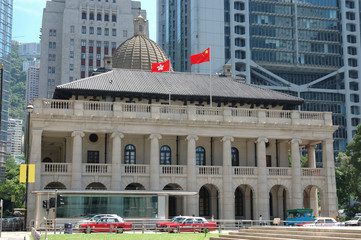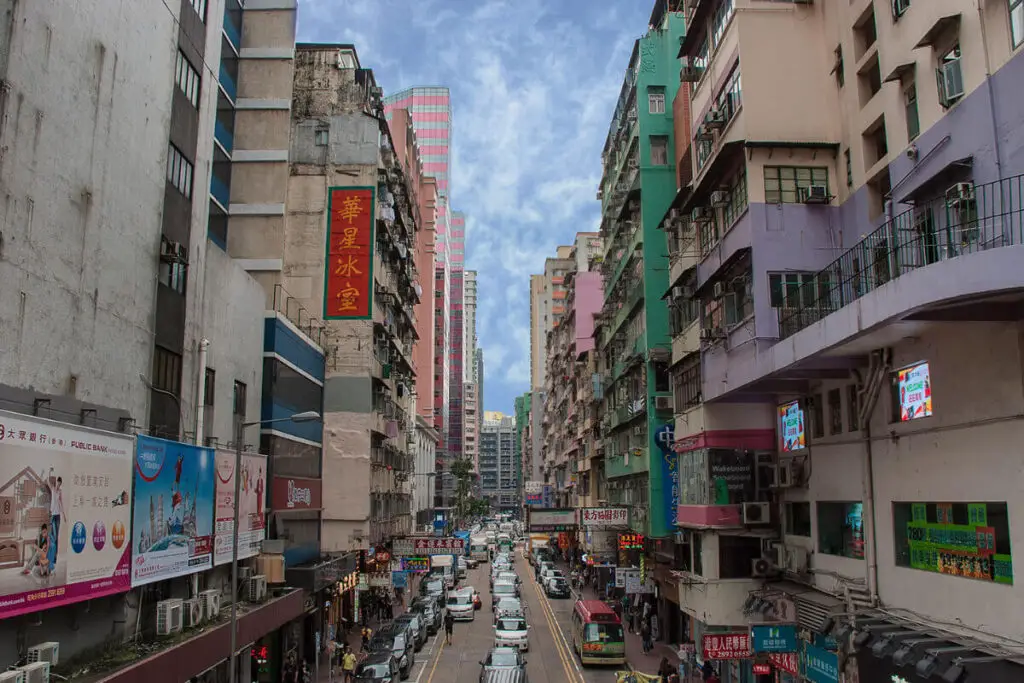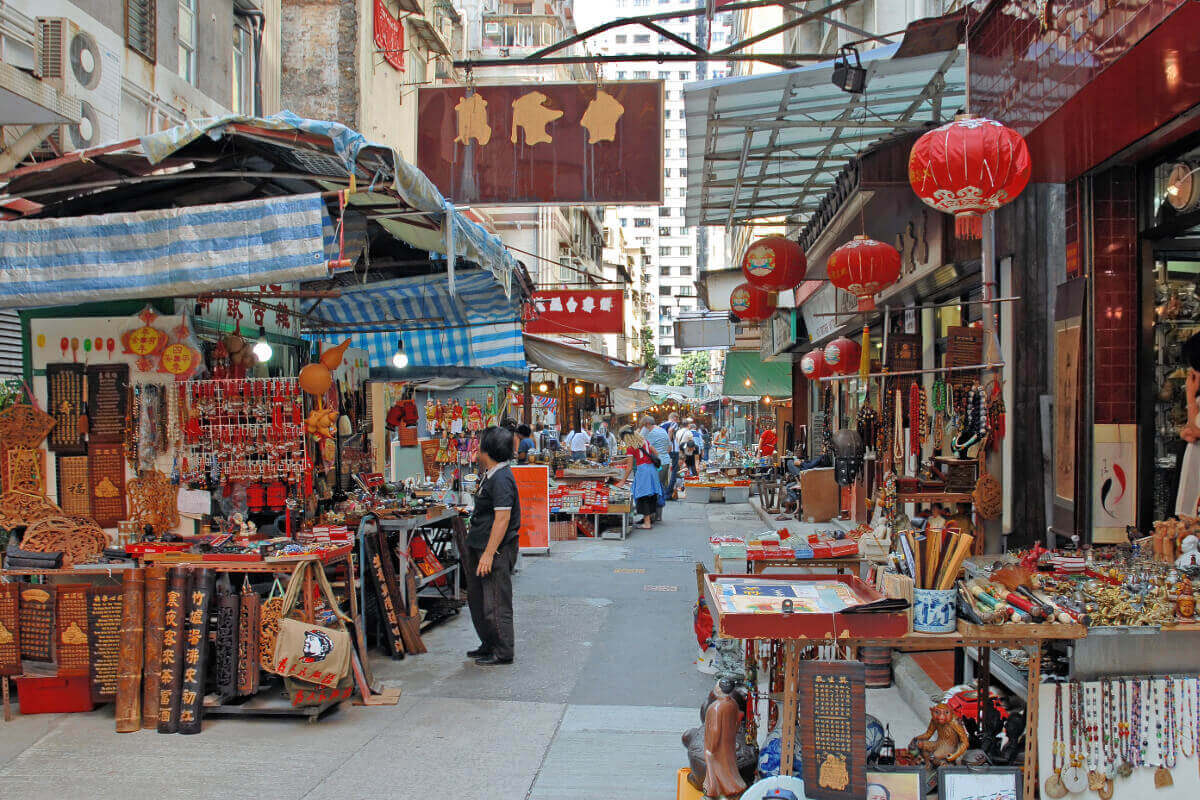The bustling city of Hong Kong, known for its towering skyscrapers and vibrant culture, has been a hotbed of democratic aspirations for decades. With a unique intertwining of its rich history and the modern political scene, the region has been thrust into the global spotlight as a critical player in the struggle for democracy.
This study aims to delve into the heart of the Hong Kong democracy movement with an in-depth look into the pivotal Umbrella Movement, its profound influence on everyday life and culture, and the resonating experiences on the city streets 24/7. This examination will also project into the uncertain future, exploring the various paths this movement could take under different influences and circumstances.
Table of Contents
- Understanding the Umbrella Movement
- The Impact on Everyday Life and Culture
- Experiences in the Streets Round the Clock
- Future of Hong Kong Democracy
- Related Questions
Understanding the Umbrella Movement
Unfolding the Umbrella Movement: An Exemplar of Democratic Protest
Craving a grand trip with meaning, an exploration filling hearts and minds with profound experiences? Hong Kong, a spectacularly vibrant city, should be on every digital nomad’s list.
It is bursting with exquisite culinary experiences, astounding panoramic views, and a deep history catalyzed by the fascinating Umbrella Movement. Hold onto your passports, friends, as we delve into the essence of this remarkable moment that so effortlessly encapsulated the spirit of democratic protest.
What’s this Umbrella Movement, one might ask? Sparked off in 2014 by the exceptional citizens of bustling Hong Kong, the movement signifies their passionate demand for transparent, accessible, and fair elections, asserting control over their future. It’s a pilgrimage site, folks, for all democracy lovers!
Why the quirky name, though? Ah, let’s unravel this together. Demonstrators shielding themselves from tear gas with umbrellas lent the movement its delightful moniker. An umbrella, a seemingly mundane everyday object, became a potent symbol of peaceful resistance. Does it make for a fascinating story to share over a campfire?
Now, we tout the Umbrella Protest as a model of democratic protest, and here’s why. Its foundation is based on massive community involvement. Everyone took to the streets, from students to teachers, merchants to monks, bonding this diversified society together in an ardent call for democracy. An awe-inspiring sight to behold, indeed!
Moreover, the movement embraced the use of non-violent resistance. Imagine crowds of protestors not retaliating aggressively but safeguarding themselves with resolute calmness. This civil disobedience resulted in a peaceful and potent wave of protest. It sounds like a scene set for an epic narrative, right?
Then there’s its ingenious use of art and technology. Think colorful post-it notes carpeting “Lennon Walls” with messages of democracy and hope. The digital savviness of the protestors cannot be overlooked as social media played an invincible role, crossing international borders, spreading the truth, and gaining extensive sympathies – a testament to today’s connected world.
Last but not least, the impact. The Umbrella Movement did not directly yield the sought-after democratic reforms; it magnetically drew the world’s attention to Hong Kong’s political struggles. It awakened a generation, instilling a genuine passion for democracy that ripples even today, giving Hong Kong an indomitable spirit. How’s that for a triumphant resolve?
The Umbrella Movement intrigued us. It stirred technicolor admiration globally, and a trip to Hong Kong will have you see why. As digital nomads, we explore the landscapes and the vibrant, chaotic truth that knits a place together. The places we choose to linger and the stories we share all become part of us, much like how the Umbrella in the heart of Hong Kong has become part of them.
Now, are you packing yet?

The Impact on Everyday Life and Culture
Suppose you’ve ever thought of immersing yourself in the vibrant atmosphere of Hong Kong. In that case, you’ve likely, at the very least, been captivated by the tales of its mesmerizing skyline, bustling markets, and compelling dim sum.
However, beyond the metropolis’s captivating allure and vivid color pallet lies an even more fascinating narrative of a place teeming with an intense passion for democracy. It is a resonance that unmistakably breathes life into the city’s every corner and offers a unique insight into the real Hong Kong – including its famous protests.
The city thrums with the echoes of powerfully orchestrated yet peaceful demonstrations. If you glance at Hong Kong’s cityscape, these echoes may be inaudible, but they still command a considerable presence. They are as much a part of Hong Kong’s identity as its iconic skyline or bustling night markets.
Hong Kong’s aspiration for democracy has led to what’s referred to as the ‘Lion Rock Spirit,’ named after a famous local mountain, symbolizing perseverance and unity in the face of adversity.
This can often be seen in the form of inspiring crowd-funded projects like the ‘Add Oil Machine,’ developed during the Umbrella Movement, enabling messages of support to be projected onto buildings during protests.
Another remarkable way the pursuit of democracy has influenced Hong Kong’s life and culture is the flourishing of creative and artistic expressions. These have offered powerful platforms for peaceful dissent. From music and theater to films, the spirit of democracy has paved the way for symbolic expression, enriching Hong Kong’s cultural facet and nurturing a community bonded in harmony and resilience.
You may be surprised to find local politics discussed fervently in places as unassuming as local cafes or ‘cha chaan tengs.’ Enabled by their deeply rooted respect for democracy, this city is where people from all walks of life wear their hearts on their sleeves and voice their opinions, contributing to the unique tapestry of Hong Kong’s day-to-day life.
Indeed, democracy has been a compass directing not just the large-scale movements that catch the world’s eye but also becoming an intrinsic part of the city’s education system. School curriculums today actively engage in stimulating critical thinking, raising politically aware and socially responsible generations, thereby ensuring the continued heartbeat of the city’s democratic pursuit.
A sojourn here is a visit to another destination and a vibrant and harrowing tale of a passionate pursuit of righteousness. As the whimsical traveler navigating the bustling lanes or the shimmering waterfront, the spirit of democracy will undoubtedly reach out to you in its many manifestations here in Hong Kong;
It is waiting for you to experience, to explore, and to narrate in your unique manner. So, are you ready to feel the pulse of this city, not just in its breathtaking skyline but also in the heartbeat of its vibrant quest for democracy?

Experiences in the Streets Round the Clock
Visible Signs of Democracy’s Pursuit in Hong Kong
While traversing the bustling cityscape of Hong Kong, democracy’s heart and footprints deeply permeate the very soul of this metropolis that pulses in tandem. Despite its densely populated streets, it breathes an unfettered spirit of freedom. Meandering through its vibrant streets and vibrant neighborhoods, the visible signs of democratic desires and achievements continually resonate.
The ‘ Lion Rock ‘ is a continual standout in the city’s skyline.’ This naturally occurring granite monolith, rising over 495 meters, represents far more than an impressive geological structure. Locals associate it with the iconic ‘Lion Rock Spirit,’ representing perseverance, unity, and the tireless struggle for universal suffrage. This spirit inspires Hongkongers to pursue political and social disruption nonviolently, carving out a democratic path with stern resolve.
Watch creativity and artistic expressions intertwining with political commentary and democratic aspirations. Streets, walkways, and even mundane stairwells transform into platforms of peaceful dissent, where graffiti, murals, and spontaneous flash mobs inspire, provoke thought, and evoke an irrepressible optimism for a democratic future.
The subtler yet impactful signs of democratic discourse emanate through local politics. An open discussion of democracy is embedded into the very fabric of everyday life. Cafés teem with animated talks of democratic ideals, local politics, and the shared dreams of a fair government. The unfiltered willingness to debate and discuss, to agree and disagree, is a cornerstone of grassroots democratic dialogue.
And then there’s the crucial juncture of education. Democracy finds its deep-seated role within Hong Kong’s robust education system. Schools and universities serve as cradles of critical thinking, and continuous interrogations on democracy echo through their corridors.
Hong Kong’s younger generations are being schooled to question, challenge, and shape their political futures, reinforcing the cyclical nature of democratic movements.
To conclude, pursuing democracy is more than a political aspiration; it twines itself into daily life, taking on cultural relevance. The vibrancy and passion seen in the milieus, from the Lion Rock to café corners, from art-filled streets to buzzing school corridors, represent Hong Kong’s unyielding quest for democracy.
It actively shapes its resounding atmosphere, making it an exquisite embodiment of the democratic spirit: persistent, passionate, and ready to make a stand. The visible signs are there for all to see, a testament to the city’s relentless march towards democracy. Each traveler’s exploration of Hong Kong reveals a resounding affirmation: Democracy lives here. And it does so unapologetically.

Future of Hong Kong Democracy
So, where does the future of democracy lie for this bustling, vibrant metropolis? It seems to hinge upon three primary factors: evolving laws, international pressures, and the tenacity of the Hong Kong people.
Hong Kong’s laws have evolved dramatically in recent years, significantly impacted by mainland China. Introducing contentious legislation, such as the national security law, has proven to be a curveball to Hong Kong’s democratic aspirations. It poses a weighty question: does a genuinely democratic society live alongside such regulatory enforcement?
Another pivotal factor is international pressure on Hong Kong’s government and Beijing. From diplomatic discussions to economic sanctions, the global community plays a critical role in shaping Hong Kong’s democratic future. But external influences can be double-edged swords; while pressure can drive change, it also risks triggering nationalism or a hardening of positions.
But most crucial of all is the resilience and determination of the people of Hong Kong. They are the key architects of their city’s future, constructing their democracy brick by brick. The implications of the ‘One Country, Two Systems’ policy have always been obscure, with democracy seeming like a tantalizing mirage, shimmering on the horizon. Yet, undeterred, Hong Kong’s population remains actively engaged in civic activities, expressing their aspirations for a democratic society.
The youth, in particular, provide a beacon of light. Their commitment to democratic ideals finds expression through innovative, peaceful resistance. In schools, students debate fervently about their political future. Democracy, it appears, is rooted deeply in the psyche of Hong Kong’s youth, making its future that much more promising.
In cafes across the city, conversations about democracy remain a mainstay, a testament to a city undeterred in its pursuit of universal suffrage. Underneath the neon lights, amidst the aromas of coffee and Cantonese cuisine, discourse about democracy thrives, signaling a city challenged but not defeated.
Vibrant, passionate, and alive, democracy continues to be an integral part of Hong Kong’s cityscape. Its people are relentless in their pursuit, and despite their complexities, every funeral-like march or peaceful assembly reaffirms the city’s stance: Hong Kong is not backing down from the fight for democracy.
The future of democracy in Hong Kong is intricately woven into the city’s fabric. It’s encapsulated by the artistic depictions of the ‘Goddess of Democracy’ at protest locations. It’s echoed in the lyrical protest songs echoing through city streets. It’s etched into every story shared between friends facing tear gas and police batons, standing firm with an umbrella in one hand and hopes for a democratic future in the other.
In full color – albeit occasionally mired in grays – is a city that unapologetically aspires for freedom, for democracy. The journey is demanding, and the road ahead is steep, but the Lion Rock spirit encapsulates Hong Kong’s mindset toward the challenge. “Stand firm, no matter how hard it gets.”
After all, at the heart of every nomadic journey is the relentless quest for irrevocable, unwavering freedom – the very seed that births democracy. The question isn’t whether the fight for democracy will continue in Hong Kong but how its narrative will unfold in the upcoming chapters of the city’s history.
As digital nomads, wanderlust seekers, and explorers, one can only hope to be a part of and learn from the city, which carries an essential tale of resilience, courage, and democratic desires. Because Hong Kong and its vigorous pursuit of democracy is not just a tale of a city – it’s a tale of humanity’s undying spirit for freedom.

As the narrative of Hong Kong’s fight for democracy unfolds, its influence continues to ripple through every facet of daily life and the city’s rich culture, resonating in the voices of the populace and the street art that permeates the city.
The democratic saga, set against this bustling metropolis’s backdrop, is imbued with resilience, hope, and uncertainty. This deep dive into the ongoing struggle offers essential insight and fosters a pioneering discussion, reflecting the ever-evolving narrative of Hong Kong’s democratic aspirations and its international implications.
The future of Hong Kong’s democracy may be shrouded in ambiguity. Still, the city’s spirit for freedom remains indomitable, creating a compelling and uniquely Hong Kong story for the global audience.
At A Bus On A Dusty Road, we talk about travel, life, and ex-pat living. We are all about “Living Life As A Global Citizen.” We explore social, cultural, and economic issues and travel.
We would love to have you be part of our community. Sign up for our newsletter to keep up-to-date by clicking here. If you have any questions, you can contact me, Anita, by clicking here.
Listen to our Podcast called Dusty Roads. You can find it on all major podcast platforms. Try out listening to one of our podcasts by clicking here.
Subscribe to our A Bus On A Dusty Road YouTube Channel with great videos and information by clicking here.
Related Questions
Is It Safe To Walk At Night In Hong Kong? Tips to Stay Safe
Hong Kong is still a relatively safe city, and Hong Kong is usually safe to walk at night. But with any place that you are traveling, there are some precautions that you should take when you are walking around a city that you do not know. In recent years, Hong Kong has had some violent protests, which has increased crime. Crime in Hong Kong is considered a crime of opportunity and is not as violent as in other parts of the world.
By clicking here, you can discover Is It Safe To Walk At Night In Hong Kong? Tips to Stay Safe.
What Is The Official Language Of Hong Kong?
The official language of Hong Kong is Chinese and English. The residents of Hong Kong are native Cantonese Chinese speakers, so the official language is Cantonese Chinese. Many in Hong Kong can also speak Mandarin Chinese; many local Hong Kong residents prefer to speak Cantonese Chinese or English.
By clicking here, you can discover What Is The Official Language Of Hong Kong?
Is Hong Kong A Separate Country Or A Part Of China?
Hong Kong and China have basic laws similar to what we would in the United States consider our constitution or our rights as individuals and citizens of a country. The Hong Kong Basic Law clearly states that Hong Kong is part of China’s territory. Hong Kong and China are one country with two different systems; Hong Kong has a separate basic law that China does not have. So, the legal, economic, financial, and other Hong Kong systems differ greatly from China.
By clicking here, you can discover Is Hong Kong A Separate Country Or A Part Of China?

